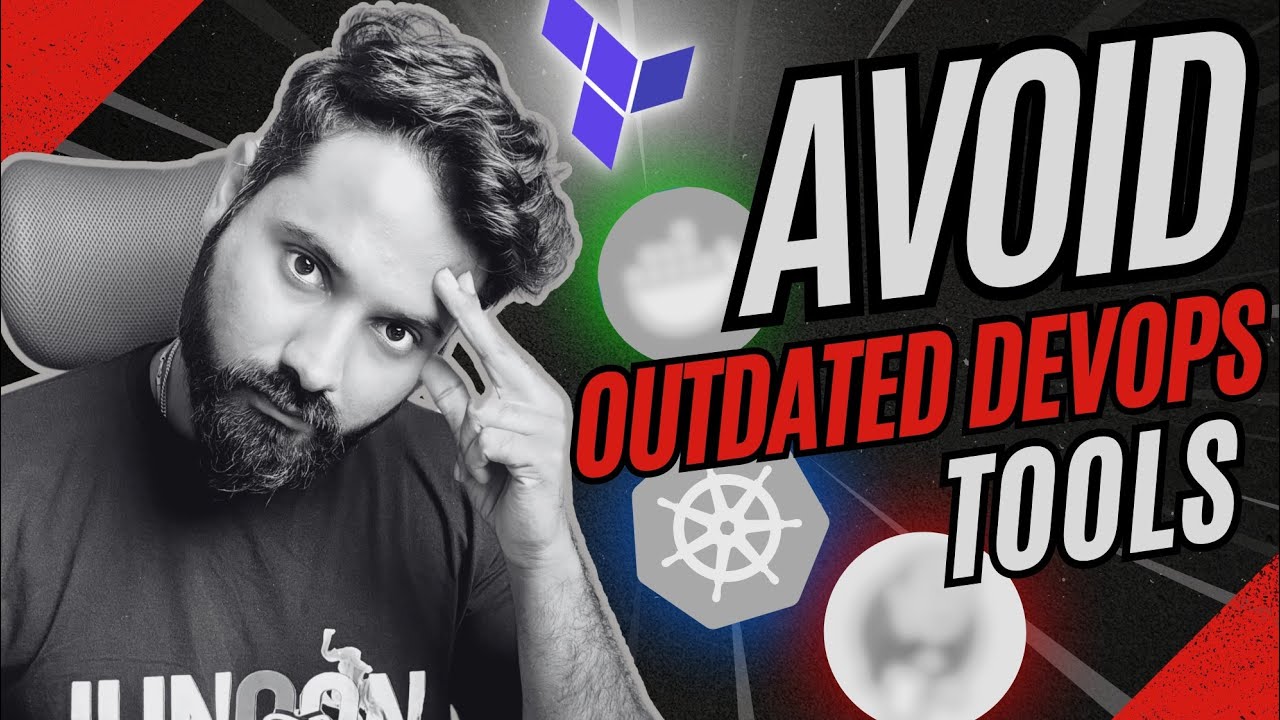How I learn new technologies as a DevOps Engineer (without being overwhelmed)
Summary
TLDRIn this video, the speaker discusses how to tackle the challenge of learning multiple technologies in the fast-evolving DevOps field. They emphasize the importance of understanding foundational concepts before diving into tools. The video offers a structured approach to learning, including evaluating the problem a new tool solves, practicing with real use cases, and ensuring foundational knowledge to avoid knowledge gaps. It also highlights the importance of continuous learning and staying updated with industry developments. The speaker shares personal tips for navigating this learning process and invites viewers to share their own strategies.
Takeaways
- 😀 Learning multiple technologies and staying current with new ones is a significant challenge for DevOps engineers.
- 💡 Understanding DevOps concepts before diving into tools is crucial for building effective workflows and processes.
- 🛠️ Tools should be seen as solutions to specific problems, not just as standalone entities; grasping the underlying concepts helps identify their relevance.
- 🚀 Before learning a new tool, ask what problem it solves and whether that problem is important to your work.
- 📚 Practicing hands-on with realistic use cases is essential for learning how to use tools effectively and deeply.
- 🔧 Start with a simple project when learning a tool to build foundational knowledge and confidence before tackling more complex tasks.
- ⏳ Patience is key when learning the basics of essential tools like Docker or Kubernetes, as a strong foundation avoids knowledge gaps and makes future learning easier.
- 🔄 Continuous learning is necessary in the tech field due to the fast pace of technological changes and updates.
- 📈 Staying updated with new tools and features can be managed by following industry experts, joining communities, and subscribing to tech channels, podcasts, or newsletters.
- 💬 Sharing and learning from peers’ experiences and tips can provide new perspectives and strategies for keeping up with technology.
Q & A
What is the biggest challenge faced by DevOps engineers when learning multiple technologies?
-The biggest challenge is the need to learn and integrate many different tools while also staying up-to-date with new technologies emerging in the fast-evolving DevOps space.
Why is it important to learn the concepts before learning the tools in DevOps?
-Learning the concepts first provides a foundational understanding of the processes and challenges in DevOps, allowing engineers to better understand how tools fit into the overall picture and solve specific problems.
Can you give an example of a DevOps concept that should be understood before learning related tools?
-Yes, the CI/CD (Continuous Integration/Continuous Deployment) concept should be understood first. Knowing its purpose and the steps involved, like building, testing, and deploying applications, helps when learning tools that automate these processes.
How can understanding the purpose of a tool help when learning it?
-Understanding the problem a tool solves helps determine if it is relevant to your work, ensuring that the tool aligns with the DevOps processes you're working with and is worth learning in-depth.
When evaluating a new DevOps tool, what is the first question to ask?
-The first question should be: 'What problem does this tool solve, and is that problem relevant to my needs?' This helps determine whether the tool is worth further exploration.
What is the importance of practicing DevOps tools hands-on?
-Hands-on practice is crucial because it helps solidify theoretical knowledge by applying it to real-world scenarios. It enhances confidence and understanding, ensuring that the engineer can use the tool effectively in their work.
What approach should be taken when practicing with a DevOps tool?
-When practicing, it's important to start with a simple, realistic use case that can be applied in a real project. This helps prevent confusion and demotivation, providing a clear path to learning how to use the tool effectively.
How can someone ensure they don't miss foundational knowledge when learning a new tool?
-To avoid missing foundational knowledge, take your time to understand the basic concepts thoroughly before moving on to advanced features. Patience in the learning process prevents knowledge gaps that could lead to confusion later.
Why is continuous learning important in the DevOps field?
-Continuous learning is essential because technology is constantly evolving. New versions of existing tools and new tools are developed all the time, so staying updated helps DevOps engineers remain effective and efficient.
What are some ways to stay up-to-date with DevOps trends and technologies?
-To stay up-to-date, you can follow industry peers on social media, join DevOps communities, subscribe to tech channels like YouTube or podcasts, and read blogs or newsletters that focus on new developments in DevOps.
Outlines

هذا القسم متوفر فقط للمشتركين. يرجى الترقية للوصول إلى هذه الميزة.
قم بالترقية الآنMindmap

هذا القسم متوفر فقط للمشتركين. يرجى الترقية للوصول إلى هذه الميزة.
قم بالترقية الآنKeywords

هذا القسم متوفر فقط للمشتركين. يرجى الترقية للوصول إلى هذه الميزة.
قم بالترقية الآنHighlights

هذا القسم متوفر فقط للمشتركين. يرجى الترقية للوصول إلى هذه الميزة.
قم بالترقية الآنTranscripts

هذا القسم متوفر فقط للمشتركين. يرجى الترقية للوصول إلى هذه الميزة.
قم بالترقية الآنتصفح المزيد من مقاطع الفيديو ذات الصلة

Must Learn Technologies in 2024

Improve your Logical Thinking like a Pro! | Logical Thinking Guide for Programmers | Tamil

Top Skills to Learn in 2025

DON'T Do These DevOps Tools | Outdated Tools = NO JOB (Hindi)

لا تضيع وقتك في مسار A+/Network+/CCNA/CCNP

How I would Become a DevOps Engineer (If I was a Beginner) in 2025
5.0 / 5 (0 votes)
